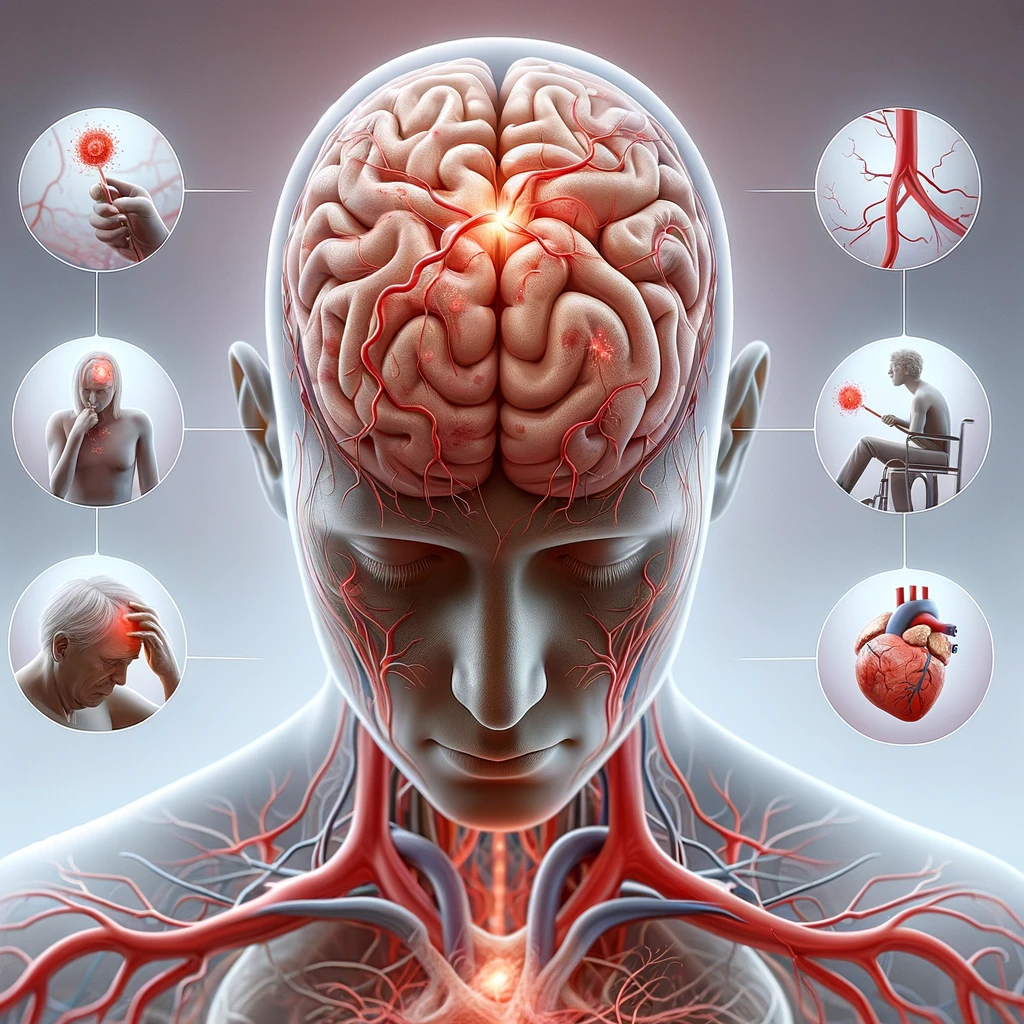
Everyone can significantly improve their health by changing some of their bad habits. Here's how to protect yourself from a stroke!
What is a stroke?
Stroke — This is the brain equivalent of a heart attack, resulting from a sudden problem with the blood supply to the brain, writes the website of the Federal Scientific Center for Medical and Biological Agency. There are two main types of stroke: the most common is ischemic stroke (about 85% of all cases), which occurs when a blood clot blocks one of the arteries in the brain.
The other type of stroke, accounting for about 15% of all cases, & #8212; hemorrhagic. It is the result of a cerebral hemorrhage caused by a ruptured blood vessel.
Many people think that stroke most often affects older people, mainly men, but in fact it most often occurs in people of active age. There are certain risk factors specific to women, such as hormonal changes associated with pregnancy and starting and stopping contraceptives. It turns out that women aged 20 to 59 years are much more likely
Attention to the lifestyle of men and women
Experts also note that men and women now lead much more similar lifestyles than in the past. Nowadays, women increasingly drink alcohol, work under high pressure and stress, and do little physical exercise — All of these factors increase the risk of stroke because they raise blood pressure.
Increasing numbers of people with obesity, which damages arteries, also increases the risk of stroke in women.
Warning signals
The brain controls our movements, so the loss of brain cells due to a stroke results in a sudden inability to control one or more parts of the body. Symptoms and signs of stroke vary depending on what part of the brain is affected.
A stroke can cause:
- weakness or loss of motor ability in a part of the body, usually on one side (eg, left leg, left arm, left side of face);
- difficulty speaking;
- problems with swallowing;
- numbness or tingling in a part of the body;
- fatigue;
- confusion, memory loss, or problems thinking, reading, or writing;
- loss of bladder and bowel control;
- vision problems;
- collapse or sudden loss of consciousness.
Risk factors for which you should pay attention
Some cannot be prevented, such as genetics and aging, but others are related to lifestyle and diet and can be changed.
One of the most common causes of stroke is persistent and uncontrolled high blood pressure, which is caused by being overweight. , excessive salt intake, genetic predisposition and age. If you have hypertension, it is extremely important to take medications regularly to control your blood pressure and have your blood pressure levels checked regularly.
Another risk factor — clogged arteries, which are more likely in people with poorly controlled diabetes and obesity. Other risk factors for stroke include smoking (damages arteries and increases blood viscosity, increasing the risk of a blood clot), drinking too much alcohol (raises blood pressure), and lack of exercise.
Preventative Steps
Although you may be tired of hearing about it, it is important to reduce your salt intake, eat plenty of fruits and vegetables, and avoid processed foods, as well as foods rich in sugar and saturated fat.
It is helpful to exercise at least 30 minutes a day, quit smoking if you smoke, drink alcohol in moderation, and maintain a healthy weight.
It is also helpful to measure your blood pressure from time to time, and if you have problems him — do this regularly. Monitor your blood sugar and cholesterol levels. If they are elevated, be sure to consult with a specialist to select appropriate treatment and lifestyle changes.
Source: https://fnkc-fmba.ru/

